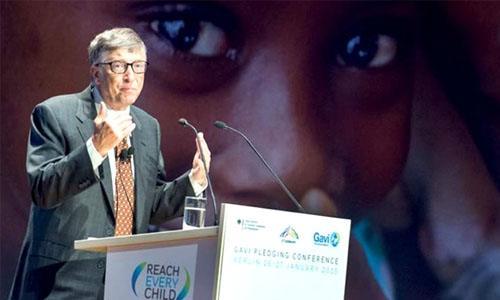
Who Really Benefits From Global Giving of Billionaires Like Bill Gates?

Based on a careful review of the charity’s behavior, the report offers these specific criticisms of the Gates Foundation:
- The relationship between the money that the foundation has to give away and Microsoft’s tax practices. A 2012 report from the U.S. Senate found that Microsoft’s use of offshore subsidiaries enabled it to avoid taxes of $4.5 billion—a sum greater than the BMGF’s annual grant making ($3.6 billion in 2014).
- The close relationship that BMGF has with many corporations whose role and policies contribute to ongoing poverty. Not only is BMGF profiting from numerous investments in a series of controversial companies which contribute to economic and social injustice, it is also actively supporting a series of those companies, including Monsanto, Dupont and Bayer through a variety of pro-corporate initiatives around the world.
- The foundation’s promotion of industrial agriculture across Africa, pushing for the adoption of genetically modified, patented seed systems and chemical fertilizers, all of which undermine existing sustainable, small-scale farming that is providing the vast majority of food security across the continent.
- The foundation’s promotion of projects around the world pushing private healthcare and education. Numerous agencies have raised concerns that such projects exacerbate inequality and undermine the universal provision of such basic human necessities.
- BMGF’s funding of a series of vaccine programmes that have reportedly lead to illnesses or even deaths with little official or media scrutiny.
In Jones’ forward to the report, she explains why the ideological underpinnings of the foundation—often overlooked or ignored in mainstream assessments—are essential to understanding the downside of BMFG’s powerful influence:
“[This report] demonstrates that the trend to involve business in addressing poverty and inequality is central to the priorities and funding of the Bill and Melinda Gates Foundation. We argue that this is far from a neutral charitable strategy but instead an ideological commitment to promote neoliberal economic policies and corporate globalization. Big business is directly benefitting, in particular in the fields of agriculture and health, as a result of the foundation’s activities, despite evidence to show that business solutions are not the most effective.
“For the foundation in particular, there is an overt focus on technological solutions to poverty. While technology should have a role in addressing poverty and inequality, long term solutions require social and economic justice. This cannot be given by donors in the form of a climate resilient crop or cheaper smartphone, but must be about systemic social, economic and political change—issues not represented in the foundation’s funding priorities.”
Earlier this week, Oxfam International released a report showing that economic inequality across the globe has soared to such heights that now a mere 16 individual billionaires, including Bill Gates, own more wealth than the 3.6 billion people who represent the poorest half of the world’s population. In total, the report confirmed, the richest 1 percent of people now own more than the bottom 99 percent combined.
These shocking levels of unequal distribution of wealth are the cause, say experts, of increasingly intractable poverty levels in places like sub-Saharan Africa and across the Global South. “The richest,” Oxfam’s Executive Director Winnie Byanyima said, “can no longer pretend their wealth benefits everyone—their extreme wealth in fact shows an ailing global economy. The recent explosion in the wealth of the super-rich has come at the expense of the majority and particularly the poorest people.”
Last week, as Common Dreams reported, international watchdog group The Global Policy Forum put out its own critical report critical regarding the impacts of large philanthropic foundations and charities. Employing the term “philanthrocapitalism” to described the phenonomen, the report argues that the “influence of large foundations in shaping the global development agenda, including health, food, nutrition and agriculture” raises “a number of concerns in terms of how it is affecting governments and the UN development system.”
And the intersection between outrageous levels of inequality on the one hand and the rise of powerful private foundations on the other shows how interlocked these phenomenons have become. As Gary Olson, professor of political science at Moravian College in Pennsylvania, wrote recently at Common Dreams, “The one thing that Big Philanthropy must overlook is the green elephant astride the boardroom’s conference table, the economic system that causes and extends [economic and social] injustices in perpetuity.”
YOU MIGHT ALSO LIKE
5 Disturbing Things Porter Ranch Methane Leak and Flint Water Crisis Have in Common
NASA Scientist Dying of Cancer Attacked by Climate Deniers
California to Investigate Exxon on Climate Cover-Up
The Kochs and the Nazis: Book Reveals Billionaires’ Father Connection to the Third Reich

 233k
233k  41k
41k  Subscribe
Subscribe 